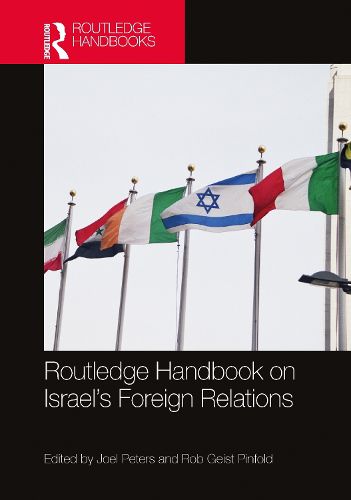Readings Newsletter
Become a Readings Member to make your shopping experience even easier.
Sign in or sign up for free!
You’re not far away from qualifying for FREE standard shipping within Australia
You’ve qualified for FREE standard shipping within Australia
The cart is loading…






This Handbook provides a comprehensive account of contemporary Israeli diplomacy and analyses the changing dynamics of Israel's bilateral relations with other states and the international community over the past seventy-five years.
Research into Israeli foreign policy has been largely sidelined by debates over security, domestic politics and the Israeli-Palestinian conflict. This Handbook addresses the gap in the literature. Comprising 31 essays written by leading scholars of Israel, the Handbook explicates how domestic, societal and economic interests, together with changing Israeli narratives of identity and location, shape and impact Israeli foreign policy. It illustrates how those factors have influenced foreign policy choices and the instruments - economic cooperation, arms sales, military training, and intelligence sharing - that Israel has utilized in order to promote its interests and build relationships with countries and actors throughout the world. Ultimately, the Handbook refutes Kissinger's famous dictum that Israel has no foreign policy, and instead follows the whims of its domestic politics. By contrast, this Handbook highlights the rich, diverse and changing tapestry of Israel's foreign relations.
Written in an accessible style, the book is designed for students taking courses in Israel studies and Middle Eastern studies, as well as a general readership interested in Israeli affairs.
$9.00 standard shipping within Australia
FREE standard shipping within Australia for orders over $100.00
Express & International shipping calculated at checkout
This Handbook provides a comprehensive account of contemporary Israeli diplomacy and analyses the changing dynamics of Israel's bilateral relations with other states and the international community over the past seventy-five years.
Research into Israeli foreign policy has been largely sidelined by debates over security, domestic politics and the Israeli-Palestinian conflict. This Handbook addresses the gap in the literature. Comprising 31 essays written by leading scholars of Israel, the Handbook explicates how domestic, societal and economic interests, together with changing Israeli narratives of identity and location, shape and impact Israeli foreign policy. It illustrates how those factors have influenced foreign policy choices and the instruments - economic cooperation, arms sales, military training, and intelligence sharing - that Israel has utilized in order to promote its interests and build relationships with countries and actors throughout the world. Ultimately, the Handbook refutes Kissinger's famous dictum that Israel has no foreign policy, and instead follows the whims of its domestic politics. By contrast, this Handbook highlights the rich, diverse and changing tapestry of Israel's foreign relations.
Written in an accessible style, the book is designed for students taking courses in Israel studies and Middle Eastern studies, as well as a general readership interested in Israeli affairs.